IRB Profiles
-
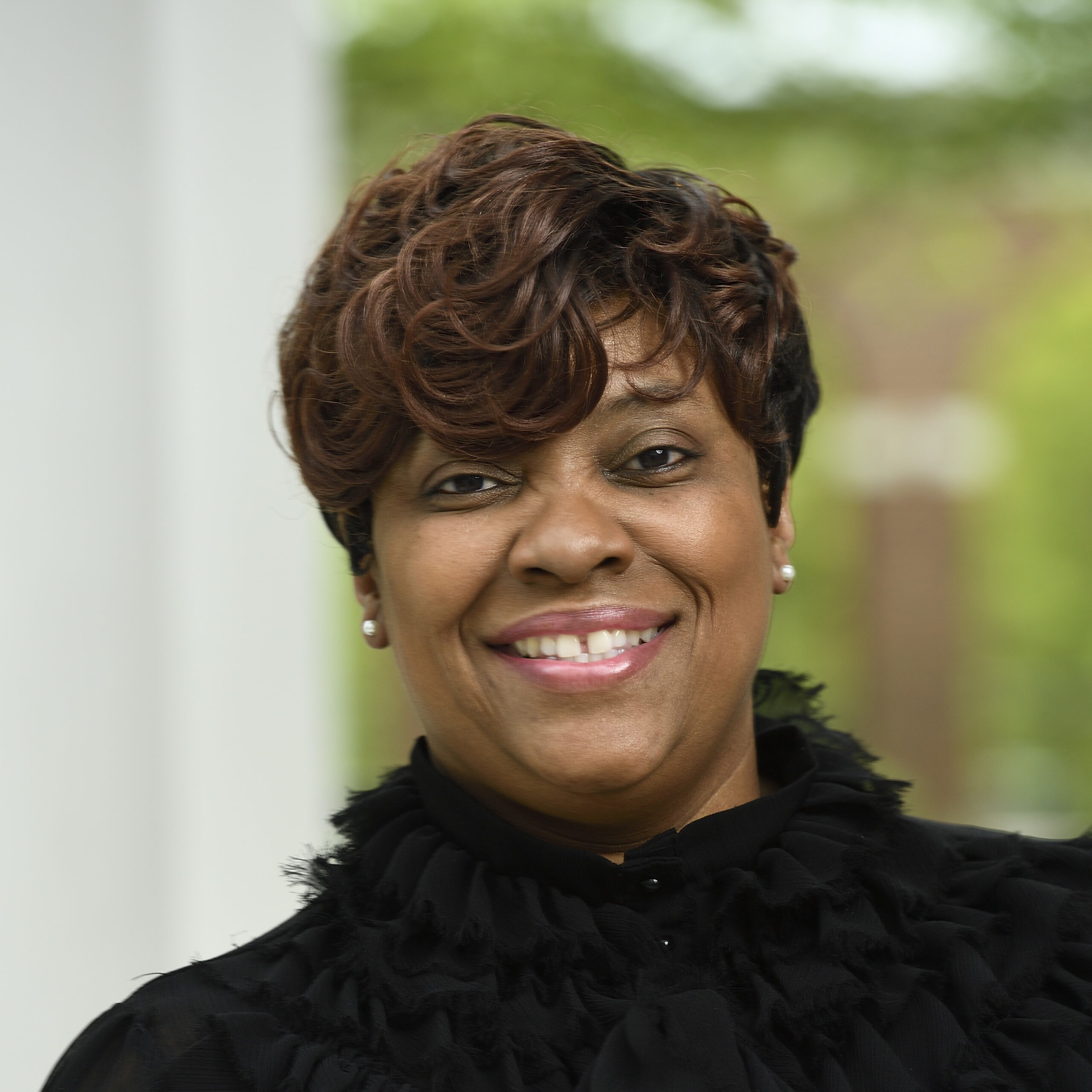
Smith, Lorraine
Advocate for Equity
Smith,
Lorraine

Smith, Lorraine
Advocate for Equity
Lorraine Smith joined the Department of Mathematical Sciences (MathSci) in the Whiting School of Engineering in 1995 as an administrative secretary (just in time to attend one of the first Black Faculty and Staff Association [BFSA] meetings, which she would preside over as president twenty-five years later). One of her first assignments in MathSci was to develop a program for course evaluations. The program was so successful that it was adopted by the University to be used by all undergraduate students on the Homewood campus for the next few years.
Smith has attended many marches, not only in Baltimore and Washington D.C., but in other cities experiencing racial unrest. “I am an advocate for my people, and for equal rights,” Smith proudly asserts. As the President of the BFSA, she orchestrated the June 18, 2020, march on the Homewood campus advocating for change, equal pay for women and Black employees, more Black faculty, and better opportunities for advancement at Johns Hopkins. More than two hundred people—including faculty, staff, students, and local residents—participated in the peaceful demonstration, held in the midst of the Covid-19 pandemic and nationwide protests after the murder of George Floyd in Minneapolis. At the time, Smith noted that she wanted “members of our community to have an opportunity to address their feelings about what’s going on around the country and around the world to end systemic injustice and racism.” She acknowledged that “These problems are unfortunately embedded in many institutions, including Johns Hopkins, but we’re here to show that a change is going to come, and it needs to come from the top down.”
“I needed people to know that we’re not treated fairly. I’m just asking for a shot at what other people are given. It was a peaceful protest. We just wanted to put it out there that things are happening for others differently than they are happening for us,” Smith explained. During the pandemic she created other opportunities to keep BFSA members connected. With most people working from home, BFSA leadership established a “Thursday check-in,” where people could login online and talk freely about whatever they were experiencing. “We had happy hours and played games just to keep people motivated and engaged.”
Smith has been active with the executive board of the BFSA for ten years, first as an unofficial events director, then East Baltimore caucus chair, and then president. Smith lobbied to have Juneteenth declared a university paid holiday by sending President Ron Daniels an email, encouraging him to make Johns Hopkins “a trendsetter,” and in 2020, Daniels declared a half-day holiday to mark Juneteenth. Then, the next year, President Daniels made Juneteenth a full-day paid holiday, moments before US Congress made it an official paid federal holiday. Each year various Juneteenth events occur around the university, with Smith helping to coordinate the major celebratory occasions.
Equal pay for staff, hiring practices, mandatory training for managers and supervisors, and recruitment of minority students and faculty remain Smith’s objectives for the BFSA. She is also the staff representative for her department’s IDARE (Inclusion, Diversity, Anti-Racism, and Equality) committee. “We’re just trying to make Hopkins more culturally diverse,” Smith said, emphasizing the importance of “being welcoming to all people so that they feel comfortable coming to work. People need to be respectful of others’ positions and the roles they play. We’re all working together for a common goal.” Smith is true advocate for change.
-
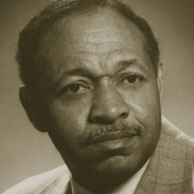
Smoot, Roland Thomas
Healer of people and of the health care system
Smoot,
Roland Thomas

Smoot, Roland Thomas
Healer of people and of the health care system
In dedicating his career to enhancing health care for blacks and mentoring the next generation of physicians, Roland Thomas Smoot improved the health care system itself. His friend and fellow Johns Hopkins colleague Levi Watkins described Smoot as a local “Rosa Parks.”
The son of a postal worker and domestic worker, Smoot demonstrated an early aptitude for math and science, and after Army service during World War II, he graduated with honors from Howard University’s undergraduate and medical schools. While on staff at the all-black Provident Hospital, Smoot began attending Saturday grand rounds at Johns Hopkins Hospital to share knowledge and ideas with the physicians there. His expertise in internal medicine drew the attention of Johns Hopkins medical school professor Benjamin Baker, who, in 1963, invited Smoot to become the first black physician to secure admitting privileges and a faculty position at The Johns Hopkins Hospital.
Described by Watkins as a “quiet, gentle, committed and determined person,” Smoot enriched the health care system by continually expanding opportunities for black medical professionals. He continued amassing “firsts” throughout his career, including becoming the first black person elected president of the Medical and Chirurgical Faculty of Maryland. He died in 2006.
-
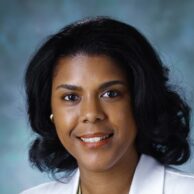
Solomon, Sharon
Role Model for Academic Medicine
Solomon,
Sharon

Solomon, Sharon
Role Model for Academic Medicine
Sharon Solomon decided she wanted to be a doctor after watching “The Body Human” on television when she was five years old. “It seemed miraculous that a doctor could affect significant change in someone’s life through science,” she recalled. Now one of the world’s foremost retinal surgeons, her many champions shower praise for Dr. Solomon’s own achievements. Wilmer Eye Institute Director Emeritus Dr. Morton Goldberg considers Solomon “a superb role model for all of our trainees and, indeed, our colleagues on the faculty. She is highly productive in all aspects of academic medicine: clinical care, research, teaching, and administration.” And, he notes, “Her demeanor and her ethical comportment are outstanding.”
Solomon attended Harvard College, then University of California, San Francisco, for medical school. “I fell in love with ophthalmology during third year” she recalled. “The first time I was involved with retinal surgery was like meeting the person you’re going to marry. I knew this was what I was going to do for the rest of my life.” By the time she had finished her surgical residency at UCSF, Solomon knew she wanted to pursue academia and secured a fellowship at “the mecca for ophthalmology,” the Wilmer Eye Institute, Johns Hopkins School of Medicine. The attraction was “not just seeing challenging patients,” she explained, “but training the next generation and feeling that I could give back as a young faculty member. There are challenges with navigating the ‘system,’ and trainees are much more likely to approach a younger faculty member with questions and to seek guidance”
Solomon accepted a faculty position after her fellowship, in 2002, and has been navigating the system ever since. “The pressure of trying to balance a productive clinical career while pursuing research interests and forging the collaborations to make that science impactful is a constant challenge. Academic productivity in terms of publications and dissemination has traditionally been the holy grail by which promotion and tenure are determined,” she explained. In 2006, Solomon was named the Katharine M. Graham Professor of Ophthalmology and later became the first African American to be promoted to full professor in the history of the Wilmer Eye Institute. Grateful patient benefactors have enabled Solomon to set up novel research projects and programs to coordinate with colleagues to conduct basic research on the etiology of idiopathic macular holes, her surgical specialty. The effort has since evolved into a nationwide study funded by the National Eye Institute, with Solomon as principal investigator. “That’s one of the benefits of being at Johns Hopkins. The generous support of patients and the collaborative nature of colleagues enable one to pursue creative ideas.”
“One can never lose sight of the academic mission,” Solomon acknowledged. “Regardless of race, regardless of gender, at a place like Hopkins, one puts her nose to the grindstone and does what must be done. After twenty-two years, I came up for air and realized, ‘my goodness, I really have gone through a lot, but I made it.’ I still enjoy the environment, and I’m thriving here. It ends up being a happy story.”
-
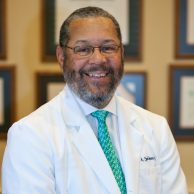
Spellman, Frank
Pioneering Retinal Surgeon, Gracious Mentor
Spellman,
Frank

Spellman, Frank
Pioneering Retinal Surgeon, Gracious Mentor
Frank Spellman chose Johns Hopkins for his undergraduate studies in 1968 because of its reputation as a springboard to a first-rate medical education. As the son and grandson of physicians, Spellman recognized early that medicine was his vocation, as did many of his classmates—he remembers that almost half of them were premed. Having grown up during the height of the civil rights movement, he wished to serve those who had marched, been bitten by dogs, and who had risked their lives to give opportunities to his generation. It was an exciting time to be on the Homewood campus: the Black Student Union had just been formed and Spellman helped to shape its programs and became involved in student government. Drs. Freda C. Lewis-Hall and Emerson Randy Hall, Jr. recall that “even in those early years we knew that Frank would be an outstanding distinguished leader. As a student he led many of the activities of the Black students on campus.” They also note that Spellman “was an intercollegiate athlete, the first African American to be a house master, and always available to counsel and mentor.” Dr. Ronald Jones has similar memories of his freshman year, in 1970. “While everyone seemed to be buried in their books, in the library, and in classes to get through, Frank made sure the students in my year were able to feel comfortable and were confident they could handle the load.”
During his junior year, a severe viral infection landed Spellman in Johns Hopkins Hospital for six weeks. The experience had a profound effect on the ambitious premed student. His lead physician, Dr. Philip Tumulty, Spellman recalls, provided a role model for the kind of doctor he wanted to be, one “who transcends ethnicity and religion” and “knows how to connect with patients.” Tumulty expressed interest in Spellman’s plans and cautioned that his “work ethic needed to line up with his aspiration” to attend a great medical school. He convinced Spellman to give more emphasis to academics and less to social and political concerns. Spellman took Tumulty’s advice and secured his medical degree at the University of California San Francisco, followed by a residency in ophthalmology at Harvard and a fellowship in retinal surgery at the Bascom Palmer Eye Institute.
Returning to his native Washington, DC, Spellman opened a private practice limited to retinal diseases and surgery, the first African American to initiate and sustain such a practice in the United States. He was also an attending physician and director of the retinal service for many years at Howard University Hospital, and vice chairman, retinal surgeon, and senior attending ophthalmologist at the Washington Hospital Center. Determined to work with the poor as well as the privileged, he rejected positions where Medicaid patients could not be seen. Spellman was elected by his peers as a ”Top Doc” in the Washington, DC, area multiple times, including the last four years of his career. His friend Dr. Lewis-Hall stresses Spellman’s “impeccable reputation” and notes that Spellman treated patients “from all over the world as well as the people of color within the DC area. He is regarded as a great mentor, and remains committed to educating and training medical students, residents, and fellows.”
Indeed, as a regular attendee at Johns Hopkins BSU alumni’s annual Fred Scott Brigade dinners, Spellman uses the opportunity to meet and mentor undergraduates on the Homewood campus. In 2018 he met Myron Houngbedji, class of 2020, himself an aspiring retinal surgeon. Houngbedji recalls that Spellman “gave me valuable insight into the field and graciously invited me to shadow him in his Retina Group of Washington office in Capitol Hill.” Houngbedji “was amazed by his patience and professionalism. The manner by which he establishes trust and connects with his patients is something that I want to emulate with my own patients in the future. As a Black man, it was incredibly inspiring to be able to see myself in such a great physician.” Frank Spellman, who retired in 2020, has achieved the goals that brought him to Johns Hopkins, and still inspires others to realize theirs.
-
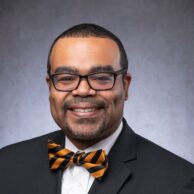
Sydnor, Charles III
Politician for the People
Sydnor,
Charles III

Sydnor, Charles III
Politician for the People
Maryland State Senator Charles Sydnor III discovered his political gifts as an undergraduate at Johns Hopkins. A native of Baltimore, he quickly became active with the Black Student Union, serving first as its education chair, which led to a job helping the Office of Admissions recruit African American students from city high schools. By his senior year he was elected president of the BSU. A highlight of that tenure was inviting Black Panther Party co-founder Bobby Seale to a packed Shriver Hall, in February 1996. He also supported a sit-in protest at the Eisenhower Library seeking recognition of Black History Month. “It was an interesting time to be at Hopkins,” he mused.
Sydnor also developed a passion for history at Hopkins and was particularly drawn to learning about the civil rights movement. For his thesis, he wrote about one of the first attempts to desegregate Johns Hopkins University in the 1930s. While doing that research, he learned about Fred Scott, the university’s first African American graduate.
“As president of the BSU, I had the opportunity to meet some of our older alums,” he recalled. “They had just started having this annual dinner and invited me and the chairs of some of the other Black organizations. They made me feel right at home. It was an opportunity to meet the founders of the Black Student Union and learn about that time in the history of the school. I think they valued my presence because I knew some of the earlier history,” Sydnor explained. “At the time, they weren’t called the Fred Scott Brigade—his story had yet to be told. When I shared my research with them about Mr. Scott, they invited him to the dinner, and he and his wife attended every year after that. At some point our group honored him by naming ourselves The Fred Scott Brigade.”
After graduation, Sydnor earned a law degree from the University of Maryland. Since 2001, he has been an attorney at Enterprise Community Investment, Inc. in Columbia, MD, which helps provide technical assistance, loans, and/or grants for development, construction, and management of the affordable housing industry. He also became active behind the scenes in local politics and began thinking about how to use his history degree to spark interest in educational policymaking. He was elected to the Maryland House of Delegates in 2014 and was named to replace his state senator when she retired in 2019.
Sydnor grew up in West Hills, the farthest community in the southwest section of Baltimore City near the city-county boundary. “It means a lot to represent my hometown. I tell my constituents that I am the reification of regionalism.” Redistricting now confines Sydnor’s legal representation to Baltimore County but, he says, “I joke with people in Baltimore City that, whatever’s going on, they’ve still got my support.”
-

Theodore, Yvonne
Conflict resolver and curiosity quencher
Theodore,
Yvonne

Theodore, Yvonne
Conflict resolver and curiosity quencher
For Yvonne Theodore, Johns Hopkins University was a place to both work and learn. Even after earning a master’s degree in liberal arts, she continued to enroll in classes to quench her curiosity about subjects ranging from art to law.
When she took early retirement in 2000, she was a special assistant to the provost and director of Affirmative Action and Equal Opportunity Programs. Theodore once described her career at Johns Hopkins by saying that she worked for all JHU schools and programs around the world, wrote federal proposals, investigated and resolved legal cases for the university’s Office of the General Counsel, and “resolved conflicts between virtually every imaginable human category.” Her commitment to justice and equity remains legendary at Johns Hopkins and continues to further the university’s progress in creating a learning community enriched by its diversity.
-
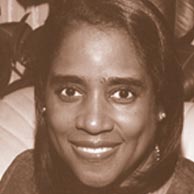
Thomas, Claudia
Lifelong boundary crosser
Thomas,
Claudia

Thomas, Claudia
Lifelong boundary crosser
In her autobiography, God Spare Life, Claudia Thomas describes three major storms in her life: the turbulence of being a college student during the 1960s, the fright of a Category 5 hurricane, and the emotional journey to survive kidney disease through a transplant from her sister.
The faith and strength that enabled Thomas to weather those storms also yielded great accomplishments. While an undergraduate at Vassar College, a 1969 sit-in she led served as a catalyst for the college to establish its Africana Studies department. After graduating from the Johns Hopkins School of Medicine in 1975, Thomas became the first female to graduate from the Yale-New Haven Hospital Orthopaedic Residency Program and the first black female orthopedic surgeon in the United States.
An assistant professor at Johns Hopkins, Thomas now maintains a private practice in Central Florida. In 2008, in honor of her work to encourage and support minorities and women entering the field of orthopedics, Thomas received the annual Diversity Award from the American Academy of Orthopaedic Surgeons.
-
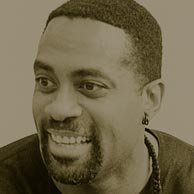
Thomas, Daniel Gary
Front man for jazz studies
Thomas,
Daniel Gary

Thomas, Daniel Gary
Front man for jazz studies
Playing jazz saxophone and flute has taken Baltimore native Gary Thomas around the world. As the Peabody Institute’s director of jazz studies and the Richard and Elizabeth Case Endowed Professor in Jazz, he shares the musical knowledge and experiences gained on those world travels with students and faculty.
Thomas founded the jazz studies degree program at Peabody in 2001 and is the first black person to become a degree program director at the conservatory.
JazzTimes magazine called Thomas one of “the more uncompromising and original saxophone voices” of his generation. He has performed and/or recorded with legendary musicians, including Miles Davis, Pat Metheny, Cassandra Wilson, Wynton Marsalis, McCoy Tyner, Kevin Eubanks, and Ravi Coltrane, and he has been a member of the Herbie Hancock Quartet and Jack DeJohnette’s Special Edition Band. DownBeat magazine named two of his recordings among the best of the 1990s.
Thomas has said, “The students want the teacher to be able to do what he’s trying to teach them to do. I liked being a [band] leader at times. I’m sort of the same thing at Peabody.”
-
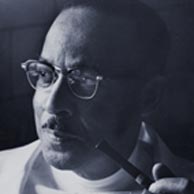
Thomas, Vivien T.
Legendary surgical partner
Thomas,
Vivien T.

Thomas, Vivien T.
Legendary surgical partner
Although a lack of funds kept Vivien Thomas from finishing college, the situation did not dim his determination or intellect. Hired originally to work in Alfred Blalock’s laboratory at Vanderbilt University, he was upgraded to surgical assistant.
Thomas became a key collaborator of Blalock’s, doing surgeries, developing operative techniques and even designing and fabricating surgical equipment. Working as a team, Blalock, pediatric cardiologist Helen Taussig and Thomas devised a groundbreaking heart surgery to correct a congenital heart defect known as “Blue Baby” syndrome.
Thomas’ role in this 1944 breakthrough moment is dramatized in the HBO film Something the Lord Made, and the PBS documentary Partners of the Heart.
Eventually Thomas became the supervisor of surgical research laboratories at Johns Hopkins, a position he held for 35 years. After retiring, he became instructor emeritus of surgery. In 1976, he was awarded an honorary Doctor of Laws degree from Johns Hopkins University.
Thomas, who passed away in 1985, has a permanent place on the Johns Hopkins campus. His portrait hangs directly across from Blalock’s in the lobby of the Blalock Building at The Johns Hopkins Hospital, and a fund named in his honor, the Vivien Thomas Fund, promotes diversity in academic medicine and biomedical science.
-
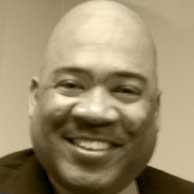
Thompson, David
Keeper of obligations, supporter of dreams
Thompson,
David

Thompson, David
Keeper of obligations, supporter of dreams
With a father in the Air Force, David Thompson lived in many states and in the Philippines before his family settled in Baltimore, his father’s hometown. Along the way, Thompson saw some of the highs and lows of life, including people who could not envision rising above their circumstances. Perhaps those experiences instilled in him the desire to support others in reaching their goals.
Thompson’s life journey began with the Air Force and so did his professional career. After serving as a non-commissioned officer and beginning his college studies in the Air Force, he completed an undergraduate degree in accounting from Morgan State University and immediately went to work for CPA firms, including Abrams, Foster, Nole & Williams, P.A., Baltimore’s largest black-owned CPA firm, and the national firm McGladrey, LLP.
Thompson left the private sector to build a career at Johns Hopkins, where he now serves as senior tax accountant for the tax office at Keswick. He is responsible for University-wide tax compliance by preparing and analyzing complex tax returns for federal and state authorities. His work also includes consulting with all of the university’s schools and
divisions regarding the proper employment status of independent contractors and employees throughout the country. But even on the job, Thompson helps the next generation by taking time to foster the growth of student interns and young employees.
In the community, Thompson is a member and former elected officer of Kappa Alpha Psi Fraternity, Inc. one of the largest and oldest black fraternities in the world. He mentors youth in inner city Baltimore, both informally and through formal programs, like the Johns Hopkins University Mentoring Program at City Springs Elementary School. In addition, he is a baseball coach, girls’ softball commissioner and treasurer of the Northwood Baseball League. Thompson shares his professional knowledge by offering pro bono accounting advice and services to aspiring entrepreneurs.
“Many youth and adults in the impoverished communities of Baltimore City don’t believe that they can achieve any goal, any endeavor, any dream,” Thompson says. “Just letting someone know that you believe in them can change their life.”
-
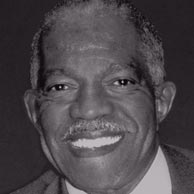
Tildon, J. Tyson
Champion for children through medical research and education
Tildon,
J. Tyson

Tildon, J. Tyson
Champion for children through medical research and education
Growing up in a time of racial segregation, J. Tyson Tildon was not permitted to attend Baltimore’s then all-white academic high schools. Never one to let barriers stand in his way, he became a renowned neuroscientist and an advocate for Baltimore City’s public schools.
After returning from a year in Paris as a Fulbright Scholar, Tildon earned a doctorate in biochemistry from Johns Hopkins University in 1965 and completed a two-year postdoctoral fellowship at Brandeis University. He then began an academic and research career at Goucher College before moving to the University of Maryland’s Department of Pediatrics where he worked for 32 years until his retirement. At Maryland, Tildon created and led the Division of Pediatric Research and became a professor of pediatrics.
The author of 115 scientific papers, Tildon focused much of his research on developmental neurochemistry and the processes that control metabolism.
To describe one cell type providing nutrients to another, he coined the term “metabolic trafficking.” He is credited with discovering Coenzyme A transferase deficiency in infants and with advancing understanding of the causes of sudden infant death syndrome, certain types of mental retardation, and strokes. Tildon was the major architect of the University of Maryland’s Sudden Infant Death Syndrome Institute, and his research received more than $10 million in National Institutes of Health funding.
Beyond the laboratory, Tildon, who passed away in 2006, made significant contributions to the community, serving as the chair of the Board of School Commissioners for Baltimore’s schools and on the boards of numerous groups, including Associated Black Charities, WYPR radio, the Civil Services Commission of Baltimore, the Maryland Academy of Sciences, the Enoch Pratt Free Library and the American Red Cross.
-
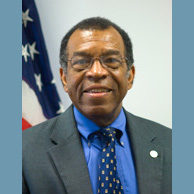
Turner, James
Air and water protector
Turner,
James

Turner, James
Air and water protector
James Turner credits his success to his “loving parents who stressed family, integrity, achievement, service and education.” As he studied physics at Johns Hopkins (undergraduate) and MIT (where he earned a PhD), Turner was troubled to see so few students of color and women considering careers in science, technology, engineering and mathematics. Addressing this issue has been a theme throughout Turner’s career, from stints on the faculties of historically black colleges to work in his community and through professional associations to promote STEM careers to women and underrepresented minorities.
Turner spent most of his career at the U.S. Department of Energy, working in magnetic fusion energy, nuclear weapons safety and nuclear nonproliferation. Among his projects was coordinating the Department of Energy’s efforts to ensure the safe dismantlement of nuclear weapons in the former Soviet Union.
Since 2008, Turner has served as the director of the Office of International Affairs and senior adviser to the National Oceanic and Atmospheric Administration.
-
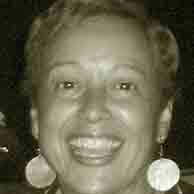
Varner-Gaskins, Rose
Champion of Change—Black Faculty and Staff Association Founder
Varner-Gaskins,
Rose

Varner-Gaskins, Rose
Champion of Change—Black Faculty and Staff Association Founder
The Black Faculty and Staff Association (BFSA) came together, as so many advocacy groups do, over lunch and a conversation. Lunch was at the Polo Grill, then a restaurant across from Homewood Field, and the people who had gathered to talk were black senior staff members concerned about the lack of support for people of color at Johns Hopkins.
Toni Moore-Duggan, one of the participants, recalled how that lunch and subsequent discussions among the staff members led to their decision in 1995 to establish the BFSA.
“After graduating from Johns Hopkins and while working there, it became evident that there was no voice or forum for black people having difficulties here,” said Moore-Duggan, a certified nurse practitioner who worked at the institution for years.
At first, Moore-Duggan said, she and the other staff members were not sure if anyone would buy into efforts to create a forum for people of color, but they did. Seventeen years later, the group
is not only going strong but has expanded its mission: to help foster a culture of collaboration by promoting and enhancing the identity and professional welfare and growth of faculty, staff and students through collaborations, community service, education, research and cultural activities. The BFSA has also charged itself with being a crucial resource for the continued success of Johns Hopkins through the development and cultivation of relationships with key leaders of the institution.
Rose Varner-Gaskins, now retired, directed the Office of Multicultural Student Affairs at Johns Hopkins University. She also spearheaded the successful effort to bring a portrait of a person of color to the Homewood campus. The painting of U.S. Supreme Court Justice Thurgood Marshall in Levering Hall was unveiled during CultureFest 1998. Although Marshall never attended or worked at Johns Hopkins, he was selected by a committee because of his strong connection to Baltimore and his role in the desegregation of schools.
-
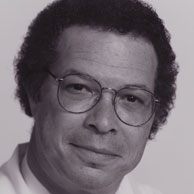
Watkins Jr., Levi
Lifesaving innovator and activist
Watkins Jr.,
Levi

Watkins Jr., Levi
Lifesaving innovator and activist
Growing up in Alabama, Levi Watkins viewed the world from the passenger seat of a station wagon driven by the Rev. Martin Luther King Jr. On Sunday mornings, Watkins would go to King’s house to pick up the list of people who needed transportation to church. Watkins would take the worshipers to church, and after the service, King would drive Watkins home, imparting wisdom along the way.
Influenced by the activism of King, Ralph David Abernathy, his parents and others, Watkins endured the challenge of being the first black to integrate Vanderbilt University School of Medicine. Later the Rev. Jesse Jackson dubbed Watkins “the doctor of the movement” because he provided medical services to so many civil rights leaders, including Abernathy, Coretta Scott King, Rosa Parks and Andrew Young.
Watkins arrived at Johns Hopkins School of Medicine in 1970, just two years after King’s assassination, determined to help the university
move from integration to true diversity. “I knew that people of color had the potential of changing Johns Hopkins,” he said.
Watkins has been a key motivator of that change. Renowned for performing the world’s first human implantation of the automatic implantable defibrillator, he also helped the hospital develop its cardiac arrhythmia service and established the nation’s first postdoctoral association. In 1979, Watkins joined the medical school’s admissions committee. With his leadership, minority representation at the school had increased 400 percent by 1983. Watkins also initiated an annual Martin Luther King Jr. Commemoration at Johns Hopkins, bringing in such notable speakers as Desmond Tutu, Coretta Scott King, Harry Belafonte and Maya Angelou, and along with Gregory William Branch, MD, he co-founded United Voices, the Johns Hopkins Medical Institutions gospel choir. The commemoration is still a part of Johns Hopkins’ annual observance of King’s birthday.
Dr. Watkins died in 2015.
-
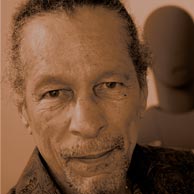
West, James E.
Innovative engineer, electrifying educator
West,
James E.

West, James E.
Innovative engineer, electrifying educator
When James West was a child, his curious mind compelled him, much to his family’s chagrin, to take apart his grandfather’s watch and his brother’s toys and to stick his finger in an electrical outlet. But a lifetime of curiosity also led him—even without the benefit of an official college degree—to secure more than 250 patents and accelerate the communications revolution.
In 1962, West and Gerhard Sessler, a fellow engineer at Bell Labs, developed the electret microphone, which is used today in most telephones and many other electronic devices. During more than four decades with Bell Labs, West continued to innovate and to expand academic and professional opportunities for blacks through the company’s Summer Research Program and Corporate Research Fellowship Program.
West joined the Johns Hopkins University faculty in 2002—at age 72—as a research professor in the Whiting School of Engineering. At Johns Hopkins, he continues his legacy of groundbreaking research and of expanding learning opportunities for future engineers. As the first chair of the Divisional Diversity Council of the Whiting School, he works with colleagues to recruit and retain minority students.
Ilene Busch-Vishniac, former dean of the Whiting School and a mechanical engineering professor, describes West, whom she helped recruit to Johns Hopkins, as “arguably the most accomplished and important black scientist active today.”
For his achievements, West has been honored with a National Medal of Technology, the nation’s highest honor for technological innovation, and been inducted into the National Inventors Hall of Fame.
-
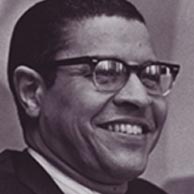
Wharton Jr., Clifton R.
Collector of firsts
Wharton Jr.,
Clifton R.

Wharton Jr., Clifton R.
Collector of firsts
For Clifton Wharton, being the first black person to earn a master’s degree in international affairs from Johns Hopkins University was only the beginning. He went on to become the first black to receive a doctorate in economics from the University of Chicago, the first black president of a major U.S. university (Michigan State), the first black to head the largest university system in the nation (the 64-campus State University of New York) and the first black chairman and CEO of a major U.S. corporation (TIAA-CREF).
In between these firsts, Wharton held various positions in philanthropy, economics, higher education and business, including 22 years working with the Rockefellers on foundation projects in Latin America and Southeast Asia and serving briefly as deputy secretary of state under President Bill Clinton.Wharton has garnered more than 60 honorary doctorates in recognition of his versatility and achievements.